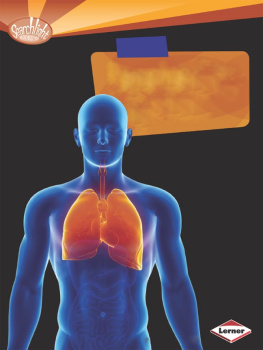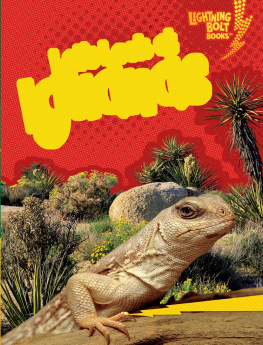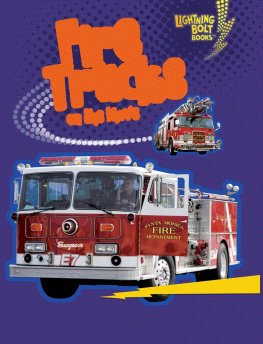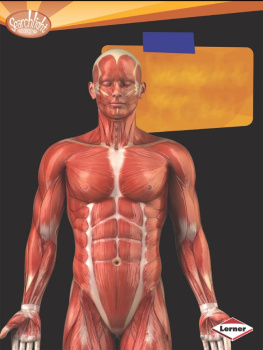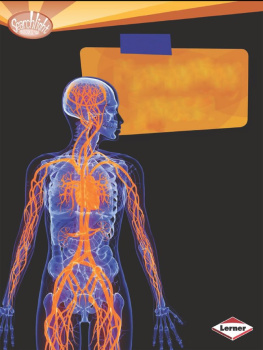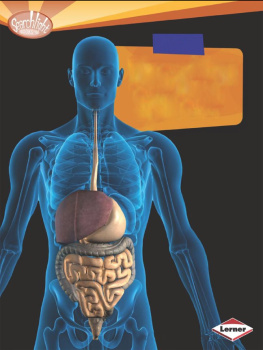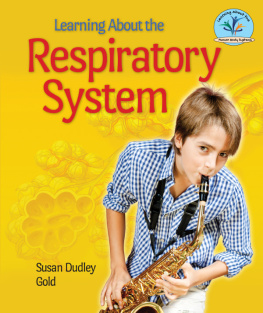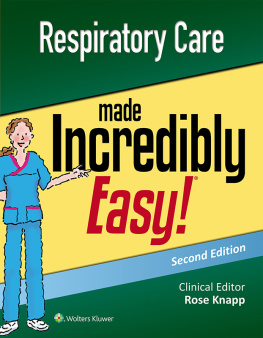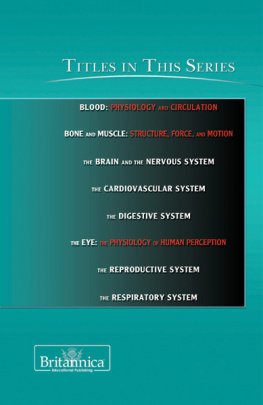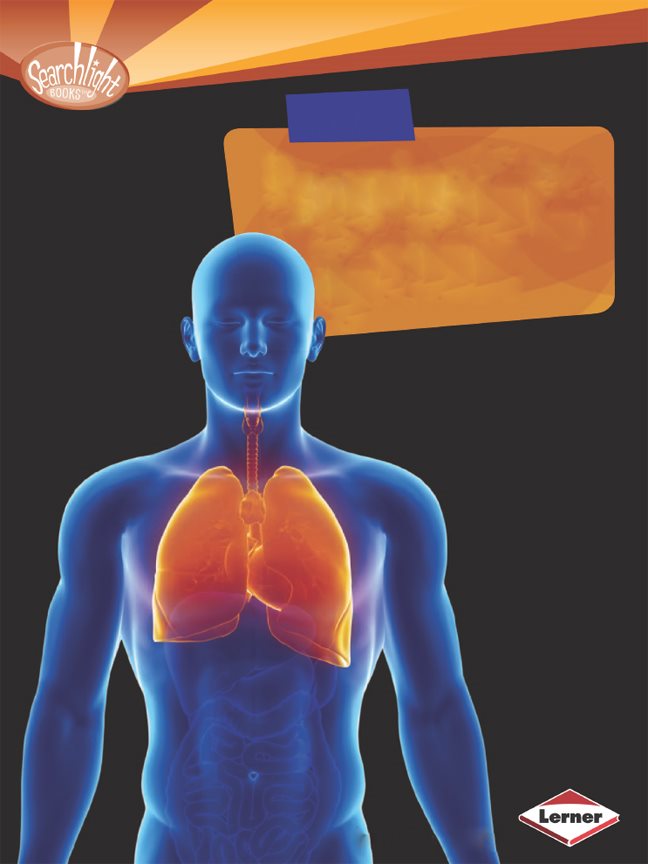Your
Respiratory System
Judith Jango- Cohen
To Eliot, who still takes my breath away
Thanks to Sara Hoffmann, senior editor
Copyright 2013 by Judith Jango-Cohen
All rights reserved. International copyright secured. No part of this book may be
reproduced, stored in a retrieval system, or transmitted in any form or by any means
electronic, mechanical, photocopying, recording, or otherwisewithout the prior written
permission of Lerner Publishing Group, Inc., except for the inclusion of brief quotations in
an acknowledged review.
Lerner Publications Company
A division of Lerner Publishing Group, Inc.
241 First Avenue North
Minneapolis, MN 55401 U.S.A.
Website address: www.lernerbooks.com
Library of Congress Cataloguing-in-Publication Data
Jango-Cohen, Judith.
Your respiratory system / by Judith Jango-Cohen.
p. cm. (Searchlight Books How does your body work?)
Includes index.
ISBN 9780761354437 (lib. bdg. : alk. paper)
1. Respiratory organsJuvenile literature. 2.RespirationJuvenile literature.
I. Title.
QP121.J37 2013
612.2dc23 2011034278
Manufactured in the United States of America
1 CG 7/15/12
eISBN: 978-1-4677-0105-1

Contents
THE NEED TO
BREATHE ... page
NOSE AND
THROAT ... page
Chapter
THE NEED
TO BREATHE
Imagine that you are sleeping.
Your chest floats up and down.
Quietly, your breath flows in and out.
You breathe slowly
when you are asleep.
How do you breathe
when you run fast?
Next, imagine that you are running a race. Your mouth
sucks in air. Your nostrils stretch wide. At the finish line,
you drop onto the grass. As you gasp for breath, your
chest pumps up and down.
You breathe faster
when you run than
when you rest.
Have you ever wondered why your breathing changes?
When you are relaxed, you take slow, shallow breaths.
When you are active, you gulp fast, deep breaths. The
more energy you use, the more air you need. But what
does breathing have to do with energy?
ENERGY COMES FROM FOOD.
WHEN YOU EAT FOOD, YOU PUT
ENERGY INTO YOUR BODY
Energy and Breathing
Energy is locked up inside the food you eat. The air you
breathe lets this energy out. Air is made of different
gases. The gas that lets the energy out of food is
called oxygen.
You always need to breathe because you are always
using energy. Even when you are asleep, your heart is
beating and your brain is working. How much oxygen
you need depends upon how much energy you use.
You need energy
to run. But
you also need
energy to think.
When you breathe
in, oxygen enters your
body. Food is in your
body too. Oxygen
combines with the food.
Then energy is given
off. A gas called carbon
dioxide is also given
off. Carbon dioxide
is harmful. You must
quickly get rid of it. The
carbon dioxide goes
into your lungs so you
can breathe it out.
The more active
you are, the faster you
breathe. You take in
more oxygen and give
off more carbon dioxide.
After you run hard, you
have to catch your breath.
Your body needs more
oxygen. It also has to get
rid of lots of carbon dioxide.
The Respiratory System
Many parts of your body help you to breathe. These
body parts are called the respiratory system. Most of
the time, you are not thinking about breathing. But your
respiratory system still works. You may be in school
running a race. Or you may be in bed dreaming about
winning one.
Your body has different systems to help
you breathe, move, and digest your food.
These systems all work together so you
can do things like play basketball.
Chapter
NOSE AND
THROAT
Your nose is like the door to
your respiratory system. Most
of the air that you breathe goes in
through your nose.
But what happens when you have a
cold and your nose gets clogged? Then
you have to breathe through your mouth. Your
mouth is like an emergency
entrance. You use it when
your nose is blocked or when
you need extra air.
Usually you breathe through
your nose. How do you breathe
if your nose is clogged?
Your Nose: A Better Way to Breathe
Breathing through your nose is healthier than breathing
through your mouth. Your nose cleans dust and germs
out of the air you breathe. Hairs in your nose snag dust.
Dust also gets stuck in mucus. Mucus is a slimy liquid
that coats the inside of your nose.
Germs are too small for the hairs
to catch. But they stick to the
mucus. Germs trapped in your
nose do not enter your body to
make you sick.
If you breathe in too much
dust, you may have to
sneeze! Sneezing blows
dust out of your nose.
Mucus does more than trap dirt and germs. Mucus
is wet. So mucus moistens the air you breathe. Air
breathed in through your nose does not dry out
your throat.
Both your nose and
your mouth connect
to your throat. So you
can breathe through
either one.
hairs
nose
mucus
mouth
tongue
pharynx
(throat)
Besides cleaning and moistening the air, your nose
also heats it. Your nose is warm. Air is heated as it
flows through your nose. Even frosty air is warmed.
This keeps the air from
chilling your body.
When you play outside in the
winter, your nose warms the
air you breathe. This way,
freezing air does not enter
your throat and lungs.

